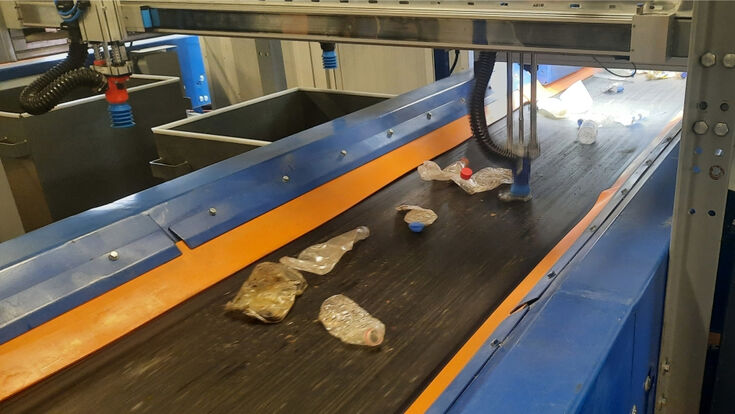Reclaim Waste Melbourne: Advanced Methods for Effective Liquid Waste Removal
Reclaim Waste Melbourne: Advanced Methods for Effective Liquid Waste Removal
Blog Article
Fostering Resource Effectiveness and Environmental Management With Liquid Waste Removal Programs
In the realm of environmental stewardship, the administration of liquid waste stands as a crucial point where resource effectiveness and environmental defense merge. Through a lens of aggressive involvement and calculated foresight, the landscape of liquid waste management reveals a tapestry of challenges and opportunities that bid us to explore the course in the direction of a greener and more lasting future.
Importance of Liquid Waste Removal
The relevance of liquid waste removal depends on its critical function in preserving ecological health and safeguarding public health. Liquid waste, if not properly handled, can present severe risks to ecological communities, water sources, and human wellness. With efficient removal processes, hazardous substances such as pollutants, pathogens, and chemicals are prevented from contaminating the atmosphere and triggering harmful effects.
Appropriate fluid waste removal additionally helps in stopping the spread of illness and lowering the possibility for groundwater contamination. By securely throwing away liquid waste, the threat of waterborne illnesses and pollution-related health issues is dramatically decreased - Reclaim Waste liquid waste removal. In addition, reliable removal practices add to maintaining the total tidiness and visual appeals of areas, consequently enhancing the lifestyle for citizens
Additionally, fluid waste removal plays an important role in sustaining lasting advancement and making certain compliance with ecological regulations. By sticking to correct waste monitoring methods, markets and organizations can reduce their ecological impact and show corporate obligation. Eventually, investing in robust liquid waste removal programs is crucial for advertising environmental stewardship and fostering a healthier, safer future for all.

Advantages of Efficient Disposal
Efficient disposal of fluid waste not just safeguards ecological health and wellness and public wellness however additionally produces various advantages that extend beyond immediate containment steps. One key benefit of efficient disposal is the reduction of pollution in water bodies and soil. By correctly handling liquid waste, the danger of contamination lowers, guarding and preserving environments biodiversity. In addition, efficient disposal practices add to source preservation. Through processes like reusing and power recovery, valuable resources can be drawn out from fluid waste, advertising sustainability and reducing the stress on resources. Adopting effective disposal techniques can lead to cost savings for areas and organizations. By maximizing waste monitoring procedures, companies can enhance procedures, decrease disposal expenditures, and possibly create profits via the sale of recycled products. Generally, the benefits of efficient liquid waste disposal are complex, incorporating ecological security, resource efficiency, and financial benefits.
Technologies for Waste Therapy
Utilizing sophisticated technologies for waste therapy plays an important role in making certain the reliable monitoring and risk-free disposal of fluid waste. One of the essential modern technologies utilized in fluid waste treatment is organic therapy.
Advanced oxidation procedures (AOPs) have actually gotten appeal for their capability to weaken consistent natural pollutants in fluid waste via the generation of extremely responsive hydroxyl radicals. Membrane layer innovations like reverse osmosis and ultrafiltration work for separating pollutants from fluid waste streams. Additionally, thermal therapy approaches such as incineration can be employed for the total devastation of dangerous parts in visit site liquid waste. In general, the assimilation of varied treatment innovations makes certain comprehensive and ecologically pleasant monitoring of fluid waste.
Role of Regulations and Compliance
In the world top article of fluid waste management, adherence to regulative frameworks and compliance criteria is extremely important for securing ecological health and sustainability. Rules play an essential function in regulating the appropriate handling, treatment, and disposal of liquid waste to avoid harm to communities and human health and wellness. By establishing clear guidelines and criteria, governing bodies make sure that services and individuals associated with fluid waste monitoring run in an ecologically responsible fashion.
Conformity with these guidelines is not only a legal need however also an ethical commitment to secure the atmosphere for current and future generations. It includes executing ideal techniques in waste collection, disposal, therapy, and transportation to minimize ecological effect and advertise resource efficiency. Non-compliance can cause fines, lawful activity, and reputational damage for companies, highlighting the importance of promoting regulative standards.

Future Patterns in Waste Management

An additional vital pattern in waste administration is the adoption of sophisticated data analytics and expert system to optimize waste collection courses, boost arranging processes, and enhance overall functional performance. These innovations allow waste management companies to make data-driven choices, causing cost savings and ecological advantages.
Additionally, there is a growing focus on the advancement of decentralized waste management systems, such as onsite therapy centers and mobile waste handling systems. These systems provide flexibility and scalability, permitting a lot more effective waste handling in varied atmospheres.
Conclusion
In verdict, promoting resource performance and environmental protection via liquid waste elimination programs is critical for lasting growth. Efficient disposal approaches, advanced modern technologies for waste treatment, and rigorous policies play key functions in minimizing ecological impact. Looking in advance, continual advancement and improvement in waste administration techniques will be essential for resolving the growing difficulties of fluid waste disposal.
In the world of environmental stewardship, the administration of fluid waste stands as an important juncture where resource performance and environmental security merge (Reclaim Waste liquid waste removal).Making use of advanced innovations for waste therapy plays an essential function in making certain the effective administration and risk-free disposal of fluid waste.In the realm of liquid waste administration, adherence to governing structures and compliance standards is vital for guarding environmental health and wellness and sustainability.In verdict, promoting source efficiency and ecological protection with fluid waste elimination programs is important for sustainable advancement. Looking in advance, continuous advancement and enhancement in waste management methods will certainly be essential for attending to the growing obstacles of fluid waste disposal
Report this page